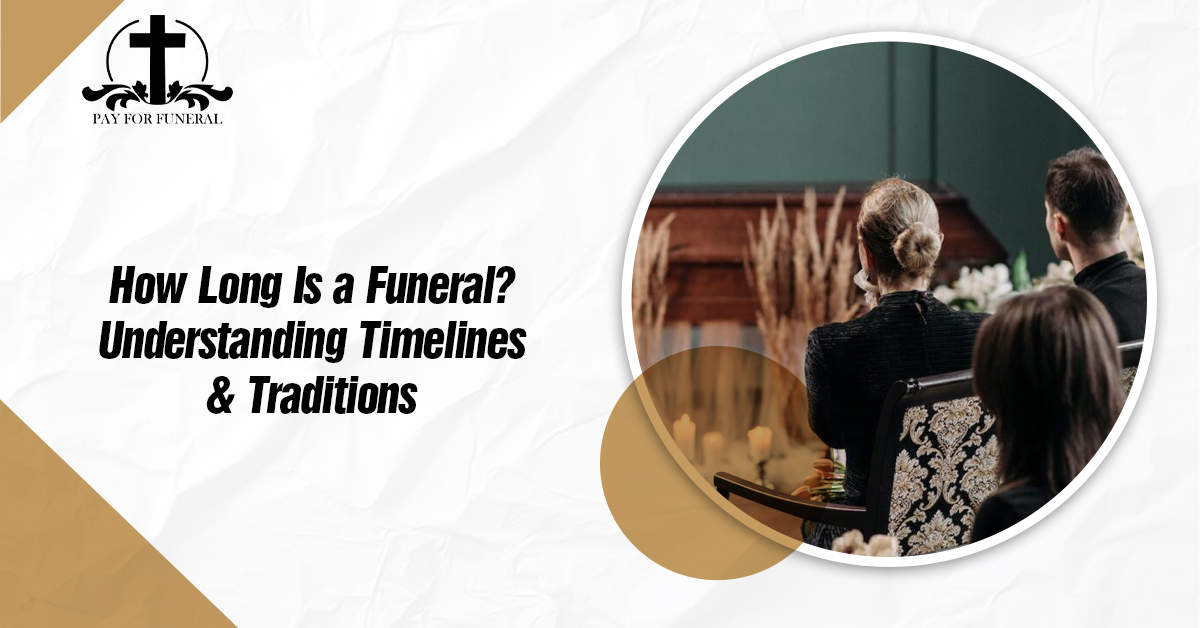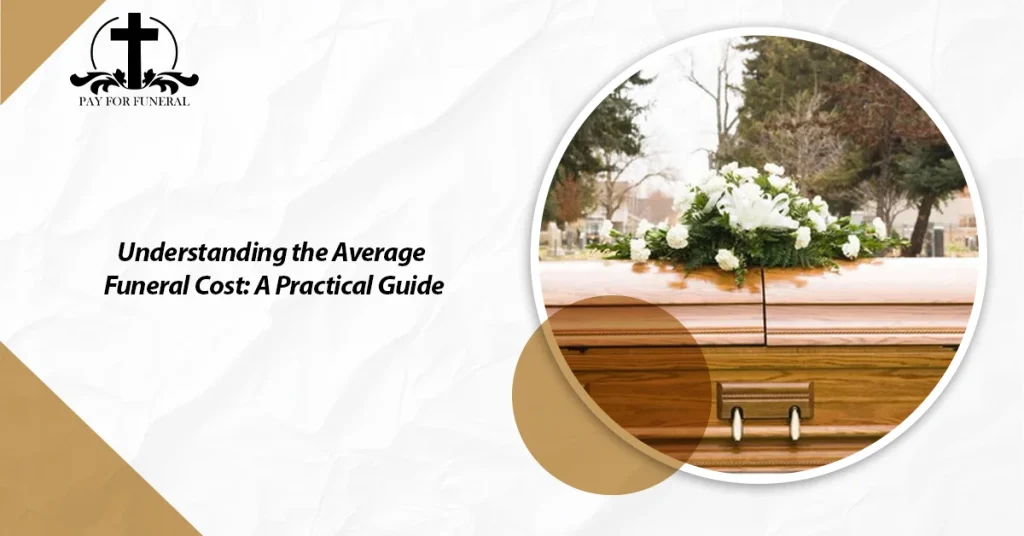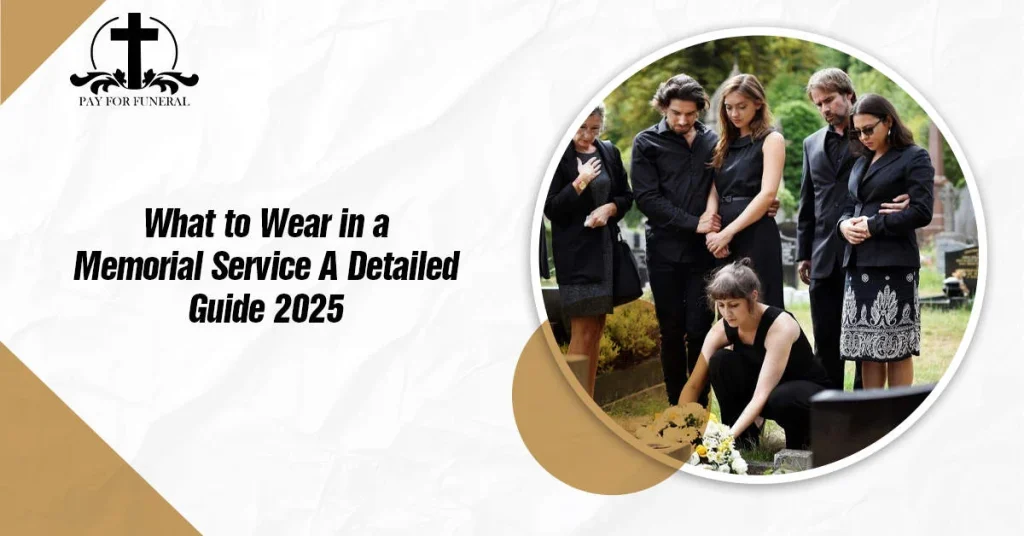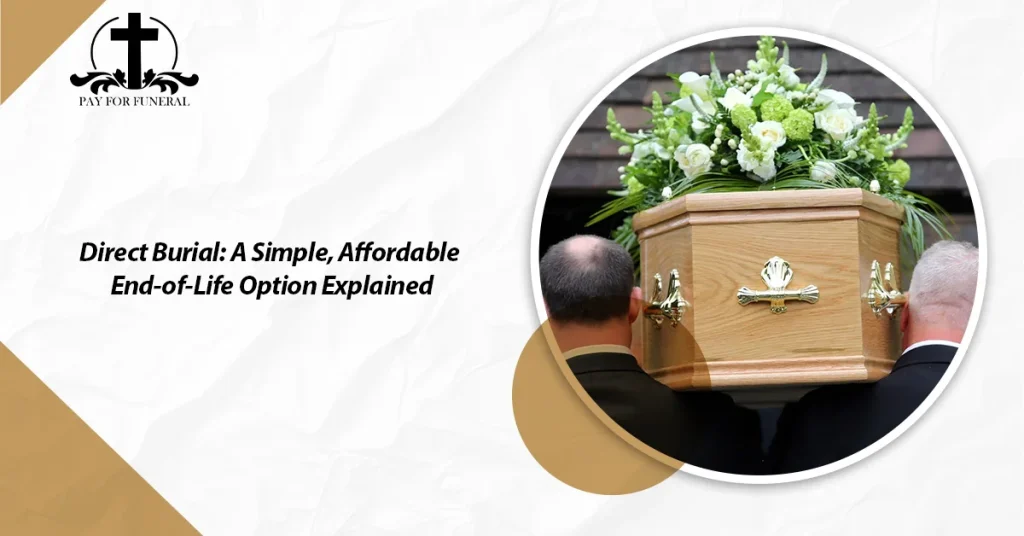Introduction
Every funeral reflects a unique life, honoring the memories, values, and impact of a person who has passed away. Even though the individuality of each service, one common question often comes up: How long is a funeral? Understanding the timeline of a funeral can help families and friends prepare both emotionally and logistically during a time of grief.
In this article, we’ll explore the average length of a funeral, from start to finish. We’ll also look at how long it takes to plan a funeral and how different religions and cultures influence the time and structure of these ceremonies. Additionally, we’ll break down what typically happens during a funeral, so you know what to expect at each stage of the event.
Whether you are planning a service or simply want to be informed, knowing the general timeline of funeral arrangements can ease stress and provide clarity during an emotional time. This understanding can help ensure everything flows smoothly while allowing you to focus on honoring the life of your loved one
How Long Does It Take to Plan a Funeral?
Many people wonder, how long does it take to plan a funeral? The answer depends on several factors, but typically, funeral planning can take anywhere from 1 to 7 days. This short timeline is common because many people prefer to hold services within a week after a loved one passes away. However, the exact timeframe can vary based on local laws, availability of venues, and family needs.
Get Free Quotes
Customized Options Await
Funeral arrangements involve several key tasks. Families need to contact a funeral home, decide between burial or cremation, coordinate transportation of the body, and select the location and type of ceremony. Choosing music, photos, or speakers for the event also takes time and thought. Additionally, delays can occur due to paperwork, travel arrangements for out-of-town relatives, or waiting on medical examiners or death certificates.
To make funeral planning more efficient:
- Have important documents ready (such as a will or insurance policy)
- Involve multiple family members to share the responsibilities
- Pre-arrange funeral preferences in advance, if possible
By understanding the planning process and preparing ahead, families can ensure a smooth and respectful tribute to their loved one, even during a challenging time.
What Is the Average Duration of a Funeral?
The average duration of a funeral usually ranges from 30 minutes to 2 hours, depending on several factors such as religion, cultural practices, and family preferences. While each ceremony is unique, many follow a traditional structure that includes a welcome or opening message, readings or prayers, a eulogy, a moment of reflection, and final blessings or goodbyes. These elements can make a service longer or shorter depending on how much is included.
Funeral duration can be influenced by the number of speakers, musical selections, rituals, and whether the service includes a full religious mass or a simple memorial. For example, a religious service with hymns, scripture, and communion may take longer than a brief celebration of life.
Here are some general estimates for common types of funerals:
- Catholic funeral: Approximately 60–90 minutes
- Non-religious funeral: Around 30–60 minutes
- Military or state funerals: Usually 1–2 hours
While these time frames provide a helpful guide, it’s important to remember that families often personalize funerals, which may extend or shorten the overall duration.
What Happens at a Funeral? A Typical Funeral Schedule
Many people ask, What happens at a funeral? While each service is personal and may be shaped by family choices or cultural traditions, there is usually a typical funeral schedule that helps guide the ceremony. The goal of the funeral ceremony is to honor the life of the deceased, offer comfort to loved ones, and provide a space for remembrance.
A typical funeral may include the following stages:
- Arrival and guest seating: Attendees arrive and are shown to their seats by the funeral staff.
- Opening remarks or prayers: The officiant or religious leader begins with a welcome, prayer, or message of comfort.
- Eulogy: A family member, friend, or clergy member shares personal stories and memories of the deceased.
- Rituals or religious rites: Depending on faith traditions, this may include readings from sacred texts, lighting candles, or taking communion.
- Closing message: The officiant may close with final words, a prayer, or a blessing.
- Funeral procession (if any): For burial services, guests may travel in a procession to the cemetery or burial site.
Optional elements can also be added to personalize the service. These may include live music, photo slideshows, or viewing of the open casket. The order of events can vary depending on cultural or religious preferences, as well as the wishes of the family. Understanding the structure of a funeral can help attendees know what to expect and allow them to participate more meaningfully.
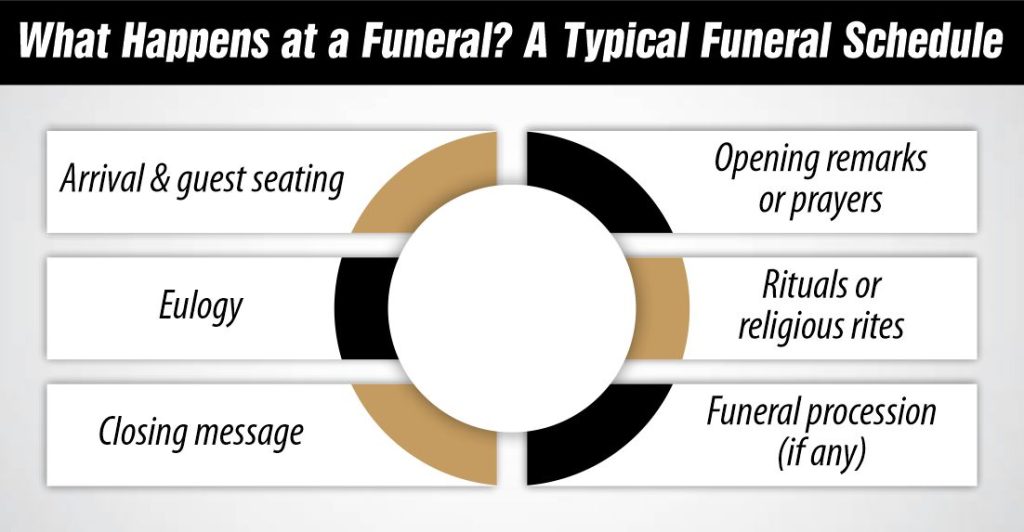
How Long After Death Is a Funeral or Cremation Held?
Another common question is, how long after death is a funeral or cremation held? On average, funeral arrangements are made so that the service takes place within 2 to 7 days after the death. This allows time for family members to gather, for legal paperwork to be processed, and for the funeral home to prepare the body.
Several factors can affect the timing of a funeral or cremation:
- Religious customs: Some faiths, such as Judaism and Islam, encourage burial within 24 hours of death. Others may be more flexible.
- Legal procedures: If an autopsy or investigation is required, the funeral may be delayed until the process is completed and the death certificate is issued.
- Cremation vs. burial logistics: Cremation may take slightly longer due to scheduling at a crematory and obtaining the necessary permits.
While most funerals happen within a week, some may be delayed if the family needs more time to travel, make arrangements, or follow specific cultural practices. In all cases, working closely with a funeral director can help manage the timing and ensure the ceremony respects both the deceased and their loved ones.
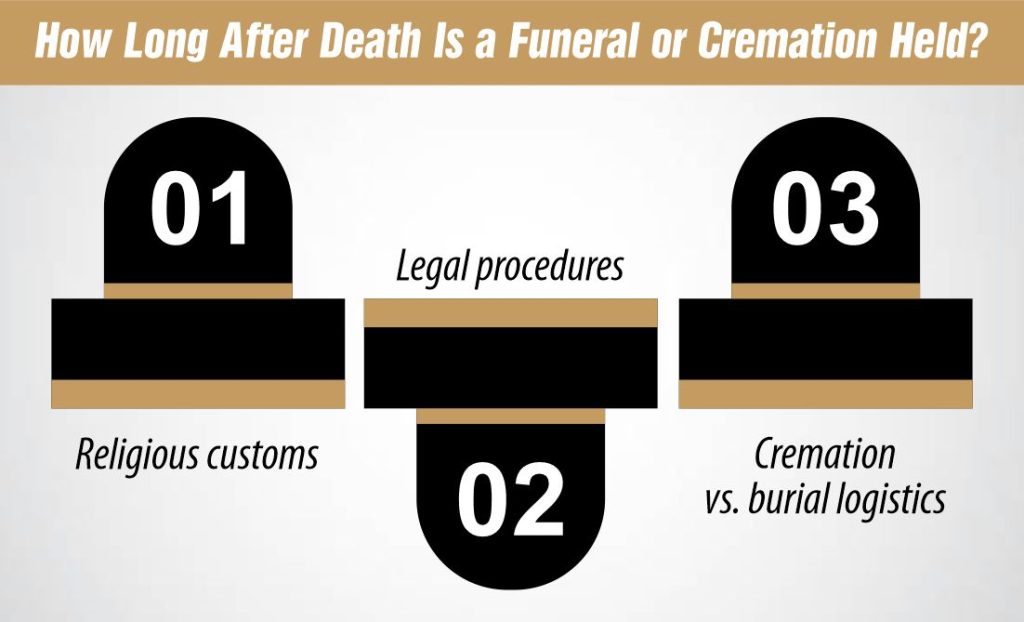
How Long Is a Funeral and Burial Together?
When asking how long a funeral and burial is, it’s helpful to understand that these two parts are usually separate but connected events. The funeral service itself typically lasts 30 to 90 minutes, depending on the type of ceremony, number of speakers, and any religious or cultural rituals included. After the funeral, guests often travel to the cemetery for the burial service, which is shorter and usually lasts about 15 to 30 minutes.
In addition to the service times, it’s important to consider travel time from the funeral venue to the cemetery. This funeral procession can take anywhere from 10 to 30 minutes, depending on the distance and traffic conditions. Weather, special rites, and military or religious honors at the gravesite may also extend the time.
Altogether, when combining the funeral and burial, the total event usually lasts about 1.5 to 3 hours. This allows time for each part of the ceremony while giving family and friends the chance to say their final goodbyes in a meaningful way.
What Is a Funeral Procession and How Long Does It Take?
A funeral procession is a line of vehicles that travels together from the place of the funeral service to the burial site. It’s a traditional and respectful way to escort the body of the deceased to their final resting place. The procession is often led by a hearse carrying the casket, followed by close family and friends in their cars.
When people ask what a funeral procession is, they’re usually also wondering how it fits into the overall funeral duration. A typical funeral procession takes about 15 to 45 minutes, depending on several factors:
- Distance between the funeral location and the cemetery
- Number of vehicles involved in the procession
- Whether there is a police escort to manage traffic and ensure safety
- Local laws and road conditions, which can affect travel speed and route
During a procession, it’s customary for other drivers to show respect by yielding or stopping, depending on local rules. For families and attendees, the procession provides a solemn and symbolic final journey with their loved one, marking the transition from the funeral to the burial.
Conclusion
The length of a funeral can vary greatly depending on the type of service, religious or cultural customs, and the personal preferences of the family. Whether it’s a short, private cremation or a traditional service followed by a burial, each funeral reflects the life it honors.
Planning ahead can make a difficult time more manageable. Knowing what to expect, how long a funeral lasts, what it involves, and how to prepare can ease both emotional stress and practical concerns.
If you’re facing the task of planning a funeral or simply want to be prepared, it’s a good idea to speak with a local funeral director. They can guide you through each step, offer a timeline based on your needs, and help ensure that the service is respectful, meaningful, and well-organized.
FAQS
What happens after the funeral service?
After the funeral service, the attendees may proceed to the burial or cremation site for a committal service. Often, a reception or gathering follows where family and friends can offer condolences and share memories of the deceased.
How to make funeral arrangements with no money?
If you need to make funeral arrangements with no money, consider options like government assistance, nonprofit aid, crowdfunding, or direct cremation, which is the most affordable. Some funeral homes also offer payment plans or low-cost services for low-income families.
What time does a funeral usually start?
Funerals typically start in the late morning or early afternoon, most commonly between 10:00 AM and 2:00 PM. This allows enough time for travel, preparation, and any post-service gatherings.
What is the shortest funeral?
The shortest funerals, such as direct cremations or immediate burials, can last as little as 10–20 minutes. These services are often simple, with minimal or no ceremony involved.
How long do funerals last for Catholics?
Catholic funerals usually last between 60 to 90 minutes, depending on whether a full Mass is held. If a Mass is included, it may be closer to 90 minutes, followed by a separate committal service at the graveside.

